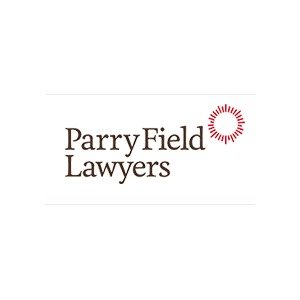Best Real Estate Lawyers in New Zealand
Share your needs with us, get contacted by law firms.
Free. Takes 2 min.
Free Guide to Hiring a Real Estate Lawyer
Or refine your search by selecting a city:
List of the best lawyers in New Zealand
About Real Estate Law in New Zealand
Real estate law in New Zealand covers the ownership and use of land and property. It encompasses a wide range of legal aspects, including sales, purchases, leasing, development, and zoning of both residential and commercial properties. The unique natural environment and regulatory framework in New Zealand create specific considerations, such as the Overseas Investment Act, which restricts foreign ownership of certain types of property. Real estate transactions are typically facilitated through licensed real estate agents, and legal professionals are often required to ensure compliance with various laws and regulations.
Why You May Need a Lawyer
There are several situations where individuals or businesses might need a lawyer specializing in real estate:
- Property Transactions: Buying or selling property often requires legal guidance to navigate contracts, title searches, and settlement processes.
- Leasing Agreements: For both landlords and tenants, lawyers can clarify rights and obligations under lease agreements and resolve disputes.
- Development Projects: Real estate development involves complex legal documentation and compliance with planning and zoning laws.
- Boundary Disputes: Property boundaries and easements can often lead to disputes that require legal intervention.
- Foreign Investment: Overseas investors need legal advice to navigate restrictions and approvals under the Overseas Investment Act.
Local Laws Overview
The real estate landscape in New Zealand is governed by several key pieces of legislation:
- The Property Law Act 2007: Establishes the framework for the sale and purchase of land and property rights.
- The Resource Management Act 1991: Governs planning and environmental management, affecting how land can be used and developed.
- The Unit Titles Act 2010: Details the rules for owning units within a building and dealing with shared property like apartment complexes.
- The Residential Tenancies Act 1986: Protects the rights of landlords and tenants in residential properties.
- The Overseas Investment Act 2005: Regulates foreign investment in sensitive areas and high-value properties.
Frequently Asked Questions
What is the process of buying a house in New Zealand?
Buying a house in New Zealand typically involves making an offer through a real estate agent, signing a Sale and Purchase Agreement, arranging finance, and completing due diligence before settlement.
Can foreigners purchase property in New Zealand?
There are restrictions under the Overseas Investment Act, especially for residential and sensitive land. Legal advice is recommended for foreign buyers.
What should I consider when leasing commercial property?
Consideration should include the lease term, rent review periods, outgoings, maintenance responsibilities, and compliance with local laws and regulations.
How can I resolve a boundary dispute with my neighbor?
Boundary disputes can be resolved through negotiation, mediation, or legal action. An accurate survey and legal advice are often necessary.
What responsibilities do landlords have under New Zealand law?
Landlords are required to provide a tenancy agreement, ensure properties meet health and safety standards, and maintain the premises.
What are body corporate fees, and when do they apply?
Body corporate fees apply to unit titles, covering shared property maintenance, insurance, and administration costs within apartment complexes.
What is a LIM report, and why is it important?
A Land Information Memorandum (LIM) provides details about a property from the local council, including zoning, consents, and potential hazards.
Are there tax implications when selling property in New Zealand?
Property sales might incur tax obligations, especially if sold within certain time frames (bright-line test). Legal or tax advice is recommended.
How do I find a reliable real estate agent in New Zealand?
Research agents, check their licensing with the Real Estate Authority, read reviews, and interview prospective agents to assess their expertise.
What does a property lawyer do during a real estate transaction?
A property lawyer reviews contracts, conducts title searches, assists in negotiating terms, and ensures compliance with relevant laws throughout the transaction.
Additional Resources
Several organizations and resources can be beneficial when dealing with real estate issues in New Zealand:
- Real Estate Authority (REA): Offers guidance on the conduct of real estate agents and provides a public register of licensed agents.
- Property Council New Zealand: Advocates for commercial property owners and provides industry insights.
- Citizens Advice Bureau: Offers free, confidential advice on a wide range of issues, including tenancy rights.
- Tenancy Services: Provides information and guidance on residential tenancy rights and responsibilities.
- Toitū Te Whenua Land Information New Zealand: Manages land titles, land and seabed data, and geodetic survey systems.
Next Steps
If you require legal assistance in real estate, begin by defining your needs clearly and gathering all relevant documentation. Next, consider consulting with a licensed real estate lawyer who can offer personalized advice based on your situation. It's advisable to approach a law firm with experience in real estate matters and seek recommendations or reviews from past clients. Finally, ensure you understand the fee structure and expected outcomes before proceeding with any legal services.
Lawzana helps you find the best lawyers and law firms in New Zealand through a curated and pre-screened list of qualified legal professionals. Our platform offers rankings and detailed profiles of attorneys and law firms, allowing you to compare based on practice areas, including Real Estate, experience, and client feedback.
Each profile includes a description of the firm's areas of practice, client reviews, team members and partners, year of establishment, spoken languages, office locations, contact information, social media presence, and any published articles or resources. Most firms on our platform speak English and are experienced in both local and international legal matters.
Get a quote from top-rated law firms in New Zealand — quickly, securely, and without unnecessary hassle.
Disclaimer:
The information provided on this page is for general informational purposes only and does not constitute legal advice. While we strive to ensure the accuracy and relevance of the content, legal information may change over time, and interpretations of the law can vary. You should always consult with a qualified legal professional for advice specific to your situation.
We disclaim all liability for actions taken or not taken based on the content of this page. If you believe any information is incorrect or outdated, please contact us, and we will review and update it where appropriate.
Browse real estate law firms by service in New Zealand
New Zealand Attorneys in related practice areas.
Browse real estate law firms by city in New Zealand
Refine your search by selecting a city.
















